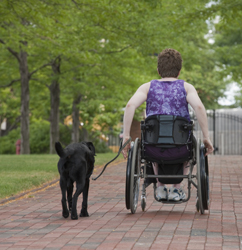Helping multiple sclerosis patients help themselves
Multiple sclerosis (MS) is a degenerative neurological condition affecting approximately 400 000 Europeans and over two million people worldwide. Approximately half of sufferers eventually suffer degradation of mental capability, affecting their quality of independent participation in daily life and capacity for work. Yet rehabilitation has been shown to help with these issues, and to improve well-being. An EU-study, 'Development and evaluation of a cognitive rehabilitation program for persons with multiple sclerosis' (MS COGNITIVE REHAB), aims to provide an evidence-based assessment of the clinical effect of a group-based cognitive rehabilitation programme. The study authors first queried the preferences of a focus group of 21 patients. The patients reported lifestyle problems typical of MS patients, and a desire for cognitive rehabilitation integrated with their other rehabilitation. Using this information, a group of professionals devised a suitable rehabilitation programme. The eight-week, group-based course, administered by an occupational therapist, was tested on a pilot group of five MS patients. The course aimed to give patients the means to manage their cognitive deficits. The resulting refined programme, incorporating new assessment tools and processes, was tested on a group of 39 MS patients from Israel. Using a mix of qualitative and quantitative terms, patients were assessed before the programme, immediately after, and again three months later on. Study patients greatly improved their occupational performance and were satisfied with their progress. Moreover, three months after completing the programme, the patients were still making advances they were happy with. They also improved their cognitive performance and ability to manage their cognitive changes, leading to lifestyle improvements. Most participants completed most of the sessions and reported satisfaction with the programme. MS COGNITIVE REHAB researchers concluded that such a programme is suitable and effective for MS patients. Initial results suggest reason for optimism concerning helping people with MS improve their independence, productivity and happiness. The study recommends adoption of similar programmes in MS clinics in Europe. The research team will soon examine the differences between the test group and a control, and assessing long-term effects of the programme.







